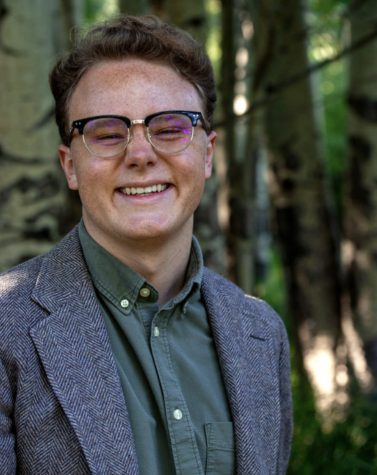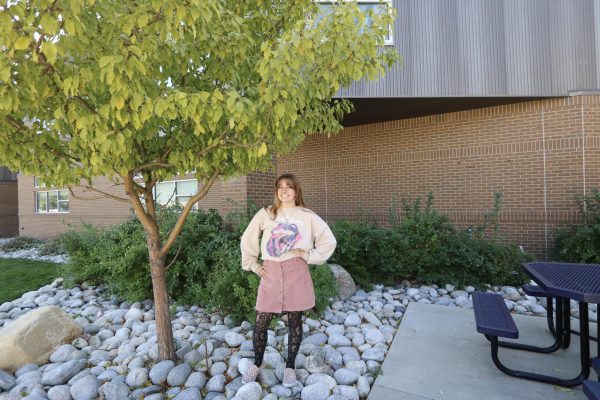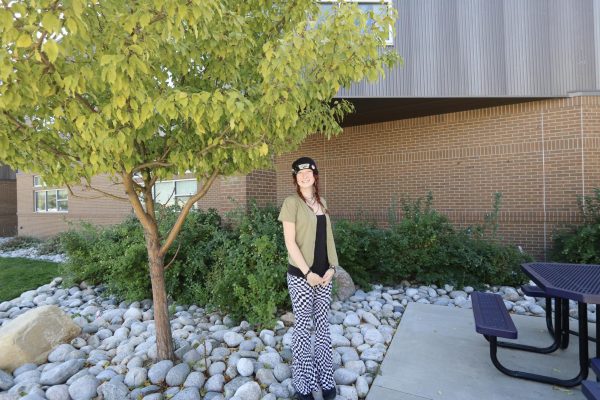90s Neoliberal Fantasia and the Death of a Generation
April 1, 2021
A little while ago I went over to my friend Jessie’s house to watch Lady Bird. At the beginning of the movie, Lady Bird and her mother get into an argument about her life. Her mom tells her how wonderful her life is, how lucky she is, and Lady Bird is cynical and sarcastic, bitter about how boring her life is. Near the end of the argument, Lady Bird says, “I just wanna live through something,” to which Jessie defiantly said, “No you don’t.” She got up from her seat and walked out of the room to go to the bathroom.
90s teens got a lot of shit from adults. The general sentiment was that they were another lost generation; bitter, sarcastic, unimpressed, and perpetually dissatisfied. They had no direction, no motivation. They spent their time listening to sad, angry music made by sad, angry people. In essence, they saw what was on MTV. In truth, this isn’t exactly true. In his essay “The 90’s Neoliberal Fantasia as experienced by Darie Morgendorffer, Millennial,” Ian Danskin uses the TV show Daria to examine what 90’s teenager-dom was like. Danskin argues that this cynicism isn’t uncaring and unfeeling, but rather a response to political and economic turmoil. The 90s were the time of Rodney King, the Gulf War, the rise of White Extremist Conspiracism and the OJ Simpson trial (which was either a misogynist getting away with abusing and murdering his wife or a racist police conspiracy to lock up a successful black man). Danskin says, “How could you care about anything, believe in anything, be surrounded by adults telling you that this is the best things have been in years, on top of having to be a high school student, and not be cynical.” In truth, the cynical teenagers cared so much about so many things that it made them depressed to see the tragedy of the world, and that those who weren’t didn’t care enough. In the 90s, Danskin argued, being cynical was brave and constructive.
I have to be very careful when I describe these people. I don’t want to sound like I’m describing Gen X, but I also want to distance this group from later Millennials. It’s those who graduated during the Obama presidency versus those who graduated during Bush’s. And it’s interesting to look at this group of people because they seem so disconnected from the 90’s teens I was talking about earlier. And the reason, I believe, is because these two groups have completely different relationships to the economy and political climates of their time.
With each generation, we see a resurgence of the American dream. Gen Xers were told they just needed to graduate from college, leverage their degree, get a nine-to-five, buy a home, retire and then die while getting married and popping out a few kids along the way. And they got that, for the most part. These elder millennials, on the other hand, got to their teenage years and questioned if they even wanted that. And then, if they tried that, they were crushed by the Great Recession. They got out of college when the job market had run thin, and have lived their adult lives with property ownership as mere fantasy. And Gen X left them for dead. They said, “Fuck you, got mine.” And they did this just as it was done to them by the baby boomers. And now, young millennials are doing the same thing to Gen Z. These young Millenials, strangely enough, were not subject to a lot of the same struggles as 90’s teens. They graduated college after Obama turned the economy around and got jobs in Silicon Valley. I also find it interesting how this cycle of the screwed first half of a generation also usually coincides with political involvement, and that political involvement being squashed. For Boomers, this was protesting the Vietnam War, the Civil Rights movement, and Bobby Kennedy’s presidential campaign. For 90’s teens, it was the birth of Progressive and Leftist anti-Iraq war sentiments, and the start of the environmental movement. For old Gen Zers, it’s Black Lives Matter, Climate Justice, and politicians like Bernie Sanders and Alexandria Ocasio-Cortez. And all of these movements were squashed. We stayed in Vietnam, Bobby Kennedy was shot, MLK was shot, we’re still in the Middle East, the earth is only getting hotter and Bernie Sanders’ campaign was sabotaged. In their place, we see moderate neoliberalism, which often characterizes the latter half of the generation. We got Hubert Humphry and Richard Nixon in the 60s, Bill Clinton and Al Gore in the 90s, and we have Hillary Clinton and Joe Biden now. And out of them we got Joe Biden primary voters, wine-moms, and TikTok Pete Buttigieg liberals respectively.
There’s still something weird about this whole thing, especially looking back at the 90s. The 90s were the best time we’ve seen since, and we still weren’t happy. The 90s were perhaps the best argument for the system. Saying we simply need the right people in charge and the system will do everything right. In the 90s we were in between the Cold War and the War on Terror; two forever wars. Crime was low, we had a liberal in the White House who coasted off of young and minority support, we had a strong economy. The 90s were peak liberal fantasia. But we still weren’t happy.
It’s easy to look back at the 90s and have nostalgia, especially compared to today. And that nostalgia has characterized our zeitgeist. Movies like Lady Bird or Jonah Hill’s aptly titled mid90s. Music like Bruno Mars and MF Doom. Joe Biden became president on the promise of restoring 90’s America. As Danskin puts it, “Things stayed terrible so long, you almost miss when they were merely bad.” The cycle is repeating itself.
It feels like our time is coming to an end. Me and some of my friends, those in the class of 2021 and 2022, have repeatedly pointed out that it feels like we’re getting the shit end of the stick. We’ve grown up sandwiched between 9/11 and Coronavirus, two of the biggest threats America has ever faced. And it truly feels like we are ending the halfway generational divide. The class of 2022, those born around 2004, will be the last of the shit-half of Gen Z, the part of the generation with the short side of the stick. Joe Biden will usher in a Bill Clinton-esque era of Neoliberal fantasia. We will have a post-COVID economic boom, we will beat COVID, and those who will graduate high school in a few years will be there to reap the rewards. Thus the cycle concludes and starts up again with Generation Alpha and whatever Mitt Romney/George Bush combination ghoul comes next.
Looking back, it’s easy to feel cynical. Like this cycle of suffering and nonaction will continue into perpetuity. And, in all likelihood, it probably will. At least until the planet implodes because of the impending doom that climate change creates. But I feel like resigning yourself to cynicism isn’t enough. Sure, cynicism makes sense in this messed-up world. We are surrounded by grief, heartache, and suffering, and this cynicism we’ve created is reasonable. But what will last past us are those who take that cynicism and mix it with optimism. Those who take those feelings and get out of it resolve to make the world better. That’s how we got Bobby Kennedy, and Fred Hampton, and MLK. That’s how we got Bernie Sanders, Angela Davis, and Noam Chomsky. That’s how we got AOC, and Ilhan Omar, and Cori Bush. And that is how we will eventually change. Hopefully, out of the ashes of this 2020 Neoliberal Fantasia we will become the world we’ve wanted to be for so long.












